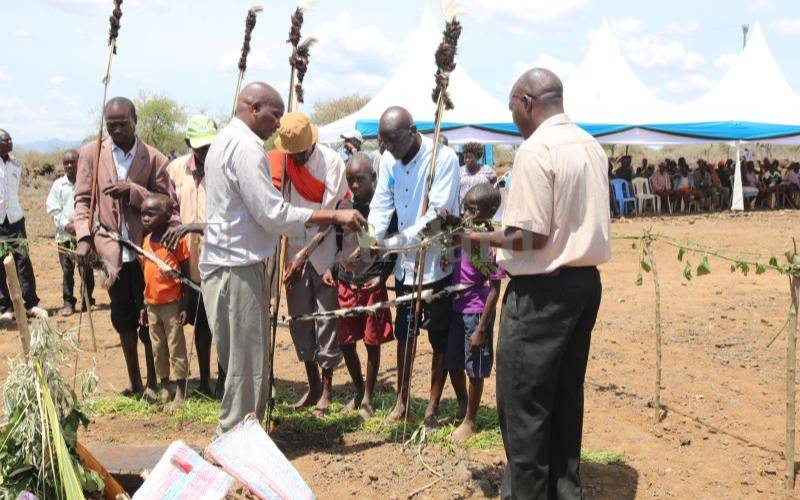×
The Standard e-Paper
Smart Minds Choose Us

Elders from four communities in the North Rift have come together to find a lasting solution to insecurity in the region.
The elders, on Sunday, performed rituals at Katuwit area in Tiaty as a way of creating peace and ending inter-community attacks locally.